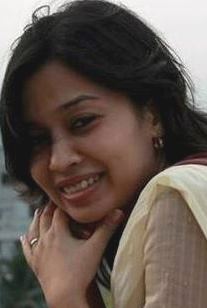

Afsana Tazreen graduated from a private university in Dhaka, Bangladesh with a Bachelor's degree in Business Administration in 2004. In spite of being a business graduate, her core interest lay in the field of social sciences. Prior to joining the MAHASSA programme, she was a research associate at the Center for Enterprise and Society (CES) of the University of Liberal Arts Bangladesh. She has co-authored several short articles on current social and economic issues plaguing the country, such as workplace safety, costs of political instability and health hazards caused by poor air quality, among others. She has also co-authored a paper with the former director of CES and a professor at Georgetown University, USA, which has recently been accepted by SAGE for publication. Afsana believes that there are plenty of opportunities for work and research in the public health sector of Bangladesh. She hopes that MAHASSA will equip her with the necessary medical anthropological knowledge which combined with her work experience in the fields of research and media, may help address the growing health and social problems in the country.
Update: After two years of coursework, I returned to Bangladesh in August 2016 and joined the Friedrich-Ebert-Foundation (FES), which is a German political foundation focused on education and workers' rights issues, in September 4, 2016, where I am still employed. I completed writing my thesis and received my certificate and transcripts in November 2016. My position as a Programme Coordinator entails detailed planning and coordination, as every activity that takes place needs to be carefully planned in advance, in line with the budget, during the monthly review meetings and strictly monitored for timely execution. I am overseeing two projects (one local and one regional): The Academy of Work (AoW) and Political Feminism. The AoW is a policy-oriented training programme for mid-level trade unionists and a pilot project in the region modeled after the Akademie der Arbeit in Goethe University Frankfurt. Political Feminism is a regional project focusing on gender parity and women workers' rights. Extensive communication, with both internal and external stakeholders, is a major element of my role. My stakeholders include international delegates, academicians, high-ranking government officials, national and German parliamentarians, local garment factory owners, local trade union representatives and of course, both the national and German media.